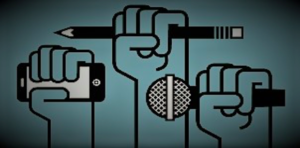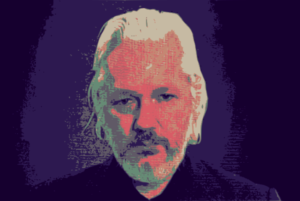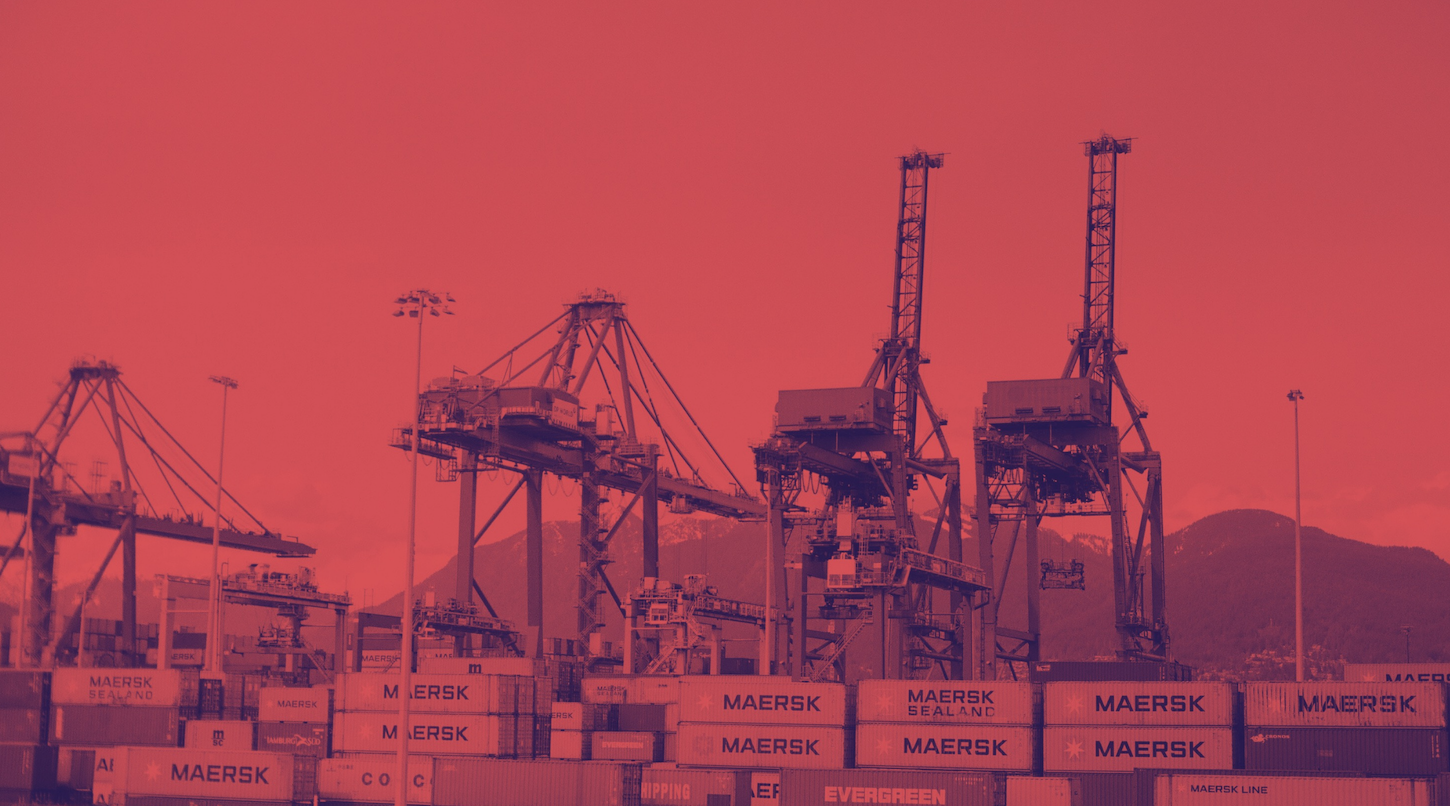
Author: Laura Sanzarello
Column Series “Threats to Media”
When thinking about threats to free media, recent events across the world have gotten us used to riots, harsh censorship and violence, and journalists dressed in orange uniforms kneeling in front of a camera. These are images that tend to belong to totalitarian regimes and cultures that do not have democratic principles at their core.

According to Article 10 of the European Convention on Human Rights, freedom of speech “includes the freedom to hold opinions and to receive and impart information and ideas without interference by public authority and regardless of frontiers”. Photo: Wikimedia Commons
In late February, the Council of Europe (CoE) released a statement (2020) regarding the extradition request for Julian Assange filed by the government of the United States (US). This follows the arrest by the British police of the famous activist and journalist in April 2019, after spending almost seven years in the Ecuadorian embassy. According to the Council’s Commissioner for Human Rights, accepting this request would represent a tremendous threat to the freedom of media and information, a topic that has great relevance in the Council’s agenda as one of the most worrying trends currently affecting its member states.
In the latest years, Assange’s name has regularly fluctuated in and out of the front pages of news outlets around the world, following his rise and fall in the universe of digital journalism. Since the launch of WikiLeaks, an online platform he created in 2006 to enable the publication of sensitive information, Assange has released hundreds of thousands of documents related to corruption of governments and banks, secret missions in recent conflicts, censorship, human rights abuses and terrorism, to name a few. Assange is now facing the consequences of his ground-breaking, internet-blowing ventures among whistle-blowers, footage and secrets that, some say, should have remained away from the public eye. September 2020 was marked by the beginning of the hearings for his extradition case, which bears the possibility of future prosecution in the US. There, awaiting him is an indictment for conspiring with hackers and favouring the theft and release of classified documents, facing up to 175 years in prison (Specia, 2020). In its opening statement, Assange’s defence defined the case as an “abuse of process” (Fitzgerald et al., 2020), calling out political motivations as the origin of these proceedings.

After releasing documents unveiling US government’s lies regarding the wars in Afghanistan and Iraq in 2010, Julian Assange was indicted for violating the Espionage Act and endangering national security. Photo: Flickr
The Assange case rises far above simple judiciary proceedings against an alleged criminal, and is riddled with deeper implications for the defence of human rights and freedoms within and beyond Europe’s borders, drawing a line between what is allowed and what is forbidden for the future of free media. Under this light, the stance taken by the CoE represents a loud condemnation of prosecution – and persecution – of journalists and media outlets on the basis of their published work, clearly expressed by point 6.1 of the Resolution 2317 (Parliamentary Assembly, 2020). In the document, the Council affirms that Assange’s “detention and criminal prosecution […] set a dangerous precedent” for the future of journalism and information, highlighting how this case could undermine investigative reporting that challenges state-approved narratives. Threats of criminal charges might then act as a deterrent for attempts to denounce corruption, human rights abuses, violence and all sorts of sensitive issues, irreversibly damaging the core principle of free speech in no-longer-free countries.
The Council of Europe’s statement disagreeing with the possibility of Assange’s extradition fits in a broader commitment to the safety of journalists and the protection of free media. Based on the principles illustrated by Article 10 of the European Convention of Human Rights (ECHR), which defends and protects the freedom “to receive and impart information and ideas”, the Council of Europe’s efforts culminated in 2018 with the creation of a platform designed to collect complaints regarding attacks to free speech, reaching a total of 795 alerts over the years and 143 in 2020 alone (Council of Europe, 2020).
Between 2014 and 2018, 3187 violations to media freedom have been identified by the Mapping Media Freedom report (Media Freedom Rapid Response, 2019), including arrests, intimidations, lawsuits, abuses and defamation across 43 countries. Among these are Hungary, Poland and Turkey, but also Germany, France and Italy, which have all recorded significantly high numbers of complaints testifying the issue’s increased degree of diffusion. From SLAPP lawsuits to blackmail, open suppression of economic resources and personal threats to journalists, attacks on press freedoms have seen a sharp rise, especially in countries undergoing populist and extremist turns. The concept of freedom of expression as the “lifeblood of democracy” (Freedom House, 2020) charges the reality faced by the media with unbearable concern for what might be a doomed future.
References
Council of Europe’s Commissioner for Human Rights (2020). Julian Assange should not be extradited due to potential impact on press freedom and concerns about ill-treatment. Retrieved from https://www.coe.int/en/web/commissioner/-/julian-assange-should-not-be-extradited-due-to-potential-impact-on-press-freedom-and-concerns-about-ill-treatment
Council of Europe (2020). Platform to promote the protection of journalism and safety of journalists. Council of Europe Portal. Retrieved from https://www.coe.int/en/web/media-freedom/all-alerts?p_p_id=sojdashboard_WAR_coesojportlet&p_p_lifecycle=0&p_p_col_id=column-4&p_p_col_count=1&_sojdashboard_WAR_coesojportlet_keywords=&_sojdashboard_WAR_coesojportlet_selectedStringFilters=&_sojdashboard_WAR_coesojportlet_selectedCategories=
Davies, C., Murphy, S., & Gayle, D. (2019). Julian Assange faces US extradition after arrest at Ecuadorian embassy. The Guardian. Retrieved from https://www.theguardian.com/uk-news/2019/apr/11/julian-assange-arrested-at-ecuadorian-embassy-wikileaks
Fitzgerald, E., Summers, M., & Iveson, F. (2020). Government of the United States of America v. Julian Assange: Opening Summary of Defence Case. Retrieved from https://dontextraditeassange.com/JA_Defence_Opening.pdf
Freedom of Expression. (2020). Freedom House. Retrieved from https://freedomhouse.org/issues/freedom-expression
Kabrhelova, L. (2019). The Free Press Under Threat in Central Europe. In Nieman Reports. Retrieved from https://niemanreports.org/articles/the-free-press-under-threat-in-central-europe/
Media. (2020). Council of Europe Portal. Retrieved from https://www.coe.int/en/web/freedom-expression/media
Media Freedom Rapid Response. (2019). Mapping Media Freedom By The Numbers May 2014-2018. Mapping Media Freedom. Retrieved from https://www.mappingmediafreedom.org/mapping-media-freedom-by-the-numbers-may-2014-july-2018/
Parliamentary Assembly. (n.d.). Threats to media freedom and journalists’ security in Europe. Council of Europe. Retrieved from http://assembly.coe.int/nw/xml/XRef/Xref-XML2HTML-en.asp?fileid=28508&lang=en
Rakusen, I., Addley, E., Borger, J., & Ingle, S. (2019). Julian Assange and the story of WikiLeaks. The Guardian. Retrieved from https://www.theguardian.com/media/audio/2019/may/02/julian-assange-and-the-story-of-wikileaks-podcast
Specia, M. (2020). Julian Assange Appears in London Court for U.S. Extradition Hearing. The New York Times. Retrieved from https://www.nytimes.com/2020/09/07/world/europe/assange-court-extradition-london.html

 Is Nuclear Disarmament Still a Dream? The Third Meeting of State Parties in Perspective
Is Nuclear Disarmament Still a Dream? The Third Meeting of State Parties in Perspective  Strategic Saboteur: Hungary’s Entrenched Illiberalism and the Fracturing of EU Cohesion
Strategic Saboteur: Hungary’s Entrenched Illiberalism and the Fracturing of EU Cohesion  The invention of development: power, narrative, and the afterlife of Truman’s speech
The invention of development: power, narrative, and the afterlife of Truman’s speech  Is the World Trade Organisation a Failure?
Is the World Trade Organisation a Failure? 


